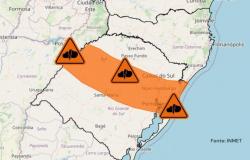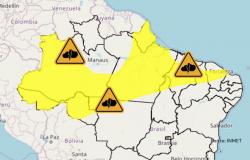The tests for the TJ AC (Acre Court of Justice) competition for the position of Judicial Analyst – Judicial Area (AJAJ) have been rescheduled and it is an excellent chance to review the program content!
The agency informed that the tests for this position will be held on May 12, in the morning. It is worth noting that the competition tests were administered on March 24th, for various Technician and Analyst specialties.
However, for the position of Judicial Analyst – Judiciary Area (AJAJ), the evaluations were canceled after complications in the delivery of discursive tests to candidates.
In total, the event offers 91 immediate vacancies, in addition to 1,460 opportunities to form a reserve list, with starting salaries of up to R$7,571.20.
See below the program content of the TJ AC competition for the position of Judicial Analyst – Judicial Area!
Do you want to have a direction for your studies in the court area? Want to know more about how to focus on content? Courts have very attractive salaries and benefits, and some of them allow remote work. And the unified TSEs competition is coming! You will not be out of that, will you? Then, be part of our exclusive group on Telegram and find out the latest news for court competitions first-hand:
CLICK HERE TO JOIN THE COURTS GROUP ON TELEGRAM
TJ AC Competition: AJAJ program content
See below the syllabus of general and specific knowledge of the AJAJ position!
General knowledge
PORTUGUESE LANGUAGE
Characteristics and functionalities of varied textual genres. 2. Textual interpretation of varied textual genres. 3. Modes of enunciation present in the text. 4. Normative grammar. 5. Mechanisms for producing meaning in texts: polysemy, irony, comparison, ambiguity, citation, inference, assumption. 6. Organization of the text and textuality factors (cohesion, coherence, intertextuality, informativeness, intentionality, acceptability, situationality). 7. Thematic progression. 8. Textual sequences: descriptive, narrative, argumentative, injunctive, dialogical. 9. Elements of textual sequencing: referencing, replacement, repetition, connectors and other elements. Argument types. 11. Grammatical classification. 12. Word formation process. 13. Morphosyntactic analysis. 14. Grammatical phenomena and construction of meanings in the Portuguese language. 15. Coordination relationships between clauses and between clause terms. 16. Subordination relationships between clauses and between clause terms. 17. Verbal and nominal agreement. Verbal and nominal regency. 19. Pronominal placement. 20. Punctuation.
LOGICAL AND MATHEMATICAL REASONING
Numerical sets. 2. Natural numbers and integers: operations, order relationship, divisibility, greatest common divisor, least common multiple and decomposition into prime factors. 3. Logic and logical reasoning. 4. Logical structures. 5. Logic diagrams. 6. Argumentation Logic: analogies, inferences, deductions and conclusions. 7. Sentential (or propositional) logic. 8. Simple and Compound Propositions. 9. Truth Tables. 10. Tautology, contradiction and contingency. 11. Equivalences and negations. 12. Argument: abduction, analogy, deduction and induction. 13. Syllogism. 14. Combinatorial Analysis: fundamental principle of counting, arrangements, permutations and combinations. 15. Understanding Statistics: presentation of statistical data: tables and graphs and centrality measures (arithmetic mean, weighted mean, median and mode). 16. Notions of probability: random experiment, finite and equiprobable sample spaces and random events. 17. Simple and compound rule of three. 18. Understanding Financial Mathematics: ratio, proportion, percentage, simple interest, compound interest and simple discounts.
UPDATES AND HISTORY, GEOGRAPHY AND GENERAL KNOWLEDGE OF BRAZIL AND ACRE (except for the positions Judicial Analyst – Direct (Judicial Area) and Judicial Analyst – Court Officer)
Social, political, historical and economic formation of Brazil. 2. Human rights. 3. Minorities and Ethnicity. 4. World of work. 5. Mobility and migrations. 6. Current environmental issues, environmental disasters and environmental policies. 7. Education: history, challenges and technological innovations. 8. Security: social conflicts, urban explosion. 9. Culture: homogeneity and heterogeneity in Brazil. 10. Technology and its influence on the social environment. 11. Energy, sustainability and social commitment. 12. Network communication: internet and implications in different areas 13. International relations. 14. Social movements. 15. Socio-anthropological aspects of health in Brazil and the world. 16. Religiosities and social and anthropological influences from African, European and indigenous sources. 17. Historical-geographical aspects of Acre
COMPUTER KNOWLEDGE (except for the positions Judicial Analyst – Systems Analyst, Judicial Analyst – Database Analyst, Judicial Analyst – Data Science Analyst, Judicial Analyst – IT Infrastructure Analyst, Judicial Analyst – IT Monitoring Analyst , Judicial Analyst – IT Business Analyst, Judicial Analyst – IT Project Analyst, Judicial Analyst – Computer Network Analyst, Judicial Analyst – Information Security Analyst, Judicial Analyst – Support Analyst and Judicial Analyst – Web Analyst designer)
Microsoft Windows family of operating systems for personal computers: graphical user interface and its elements, as well as the use of help and support and keyboard shortcuts. 2. File and folder management, including file types and their extensions and searching and finding content. 3. Settings and Control Panel, covering Troubleshooting. 4. Backup and print management procedures. 5. Installing, uninstalling, or changing programs and enabling or disabling features, including configuring applications. 6. Compression and extraction of content from zip files. 7. Applications belonging to Windows (Notepad, Paint, WordPad and Character Map). 8. Office applications using free software and proprietary software. 9. Word processor (creation, editing and formatting of texts and resources aimed at document automation). 10. Spreadsheet (data types and references, creating spreadsheets and graphs, inserting arithmetic formulas and formulas based on spreadsheet functions, configuring data pads and applying filters and obtaining data from external sources. 11. Presentation generator ( creation of slides, formatting and insertion of images and objects and transition effects and animations, slideshow and export to PDF format). 12. Internet browsers, web search services and use of electronic mail. 13. Services e-mail
LEGISLATION (except for the positions Judicial Analyst – Physical Educator, Judiciary – Doctor, Judicial Analyst – Dentist, Judicial Analyst – Psychologist and Judicial Analyst – Social Service)
Ethics and public service. 2. Ethics in the Public Sector. 3. Law No. 8,429/1992 and its amendments. 4. Law No. 9,784/1999 and its amendments (administrative process). 5. Access to information: Law nº 12,527/2011. 6. Decree No. 7,724/2012. Decree No. 9,830/2019. 8. Fundamental Principles of the 1988 Federal Constitution: Fundamental Rights and Guarantees; Individual and collective rights and duties; Social rights; State Organization: union, states, municipalities, Federal District and territories; Public Administration: public servants; of the Organization of Powers. 9. Principles of Administrative Law. 10. Administrative Acts: elements and attributes. 11. Classifications and types of administrative acts. 12. Annulment, revocation and validation of administrative acts. 13. Competence. 14. Administrative Processes. 15. Administrative Improbity. 16. Public agents: political agents and public servants. 17. The new bidding law 14.133/21
See the specific content of Judicial Analyst – Judicial Area in the notice!
TJ AC competition summary
- Bank: Verbena Institute (UFG)
- Vacancies: 91 immediate vacancies + 1,460 CR
- Position: Judicial Technician and Analyst
- Starting salary: up to R$7,571.20
- Education: secondary and higher education
- Tests: 4/28/2024 (test rescheduled for AJAJ)
- Notice here!
Study for any competition!
A special condition on our subscriptions is available for you who want to enjoy the best moment in the history of Public Tenders.
We did affordable values for all budgets!!!
Here’s a little of what awaits you:
- Question System: Accelerate your progress and have training focused on your real needs.
- Experienced Teachers: It’s not just about teaching, it’s about showing the path to approval. Our certified teachers have already experienced everything you are experiencing and will guide you.
- Video and PDF classes for more than 220 competitions (including the Unified National Competition) and much more!
Don’t leave it for later, many notices with generous salaries forecasts will be published at any time.
The sooner you secure the best resources to gain approval, the better!
Tags: Competition study AJAJ rescheduled tests
--





